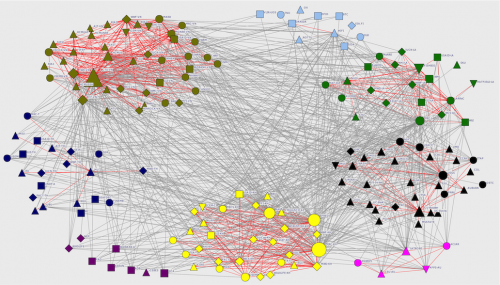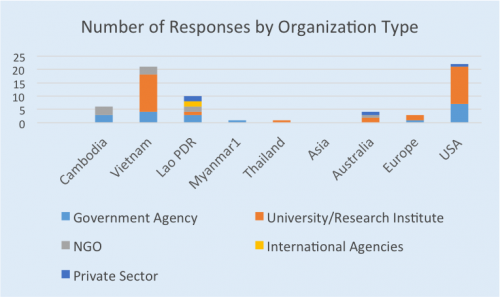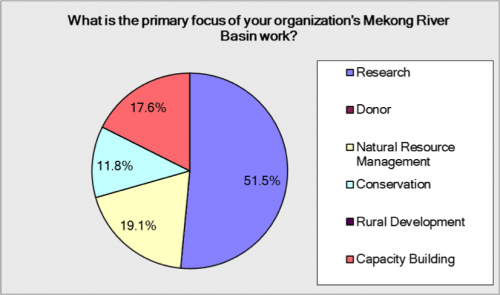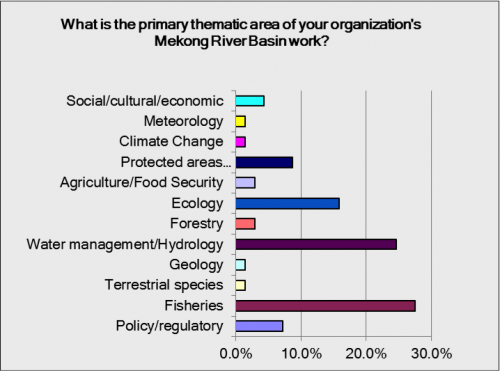
Discussions about work in the Mekong Basin often point to the need for increased communication and collaboration among organizations. One of the first steps in this effort is to identify and understand the working relationships among the many different people and institutions engaged in work in the Mekong region. To help achieve this kind of overview, the Mekong Fish Network designed a survey to document existing collaborative networks in the Mekong Basin. The survey was conducted on behalf of the MFN by FISHBIO, with analytical support from the U.S. Geological Survey. We would like to thank the many people who took the time to contribute, and are pleased to share some preliminary results of the survey.

The email survey was sent to 207 recipients in November 2015, of whom 69 responded, for a response rate of 33%. Most of the respondents came from universities and research institutions in the United States and Vietnam, followed by Lao PDR and Cambodia. When asked to identify the primary focus of their organization’s work, about half of the respondents (52%) listed research, followed by natural resource management (19%), capacity building (17%), and conservation (12%). The primary thematic work areas that were most frequently listed included fisheries, water management, and ecology. Survey respondents were asked to review a list of 182 organizations and select the ones with whom they had worked in the past year. “Working together” was broadly defined as working with researchers affiliated with the organization, working together on projects and planning, sharing research and information, or receiving or providing funds.

As evidenced by the spiderweb-like diagram (top image) that was created from survey responses, the network of Mekong Basin organizations displays a high level of connectedness (.903), demonstrating great potential for increased collaboration and information exchange. Remarkably, respondents listed more than 120 additional organizations that were not included in the original survey, highlighting the value of conducting follow-up efforts to this initial pilot. We look forward to further examining the results of this pilot survey, and exploring future avenues. If you are interested in learning more about the data or this effort, please contact us at mekong@fishbio.com. Click here to download a poster summarizing the pilot study results.
